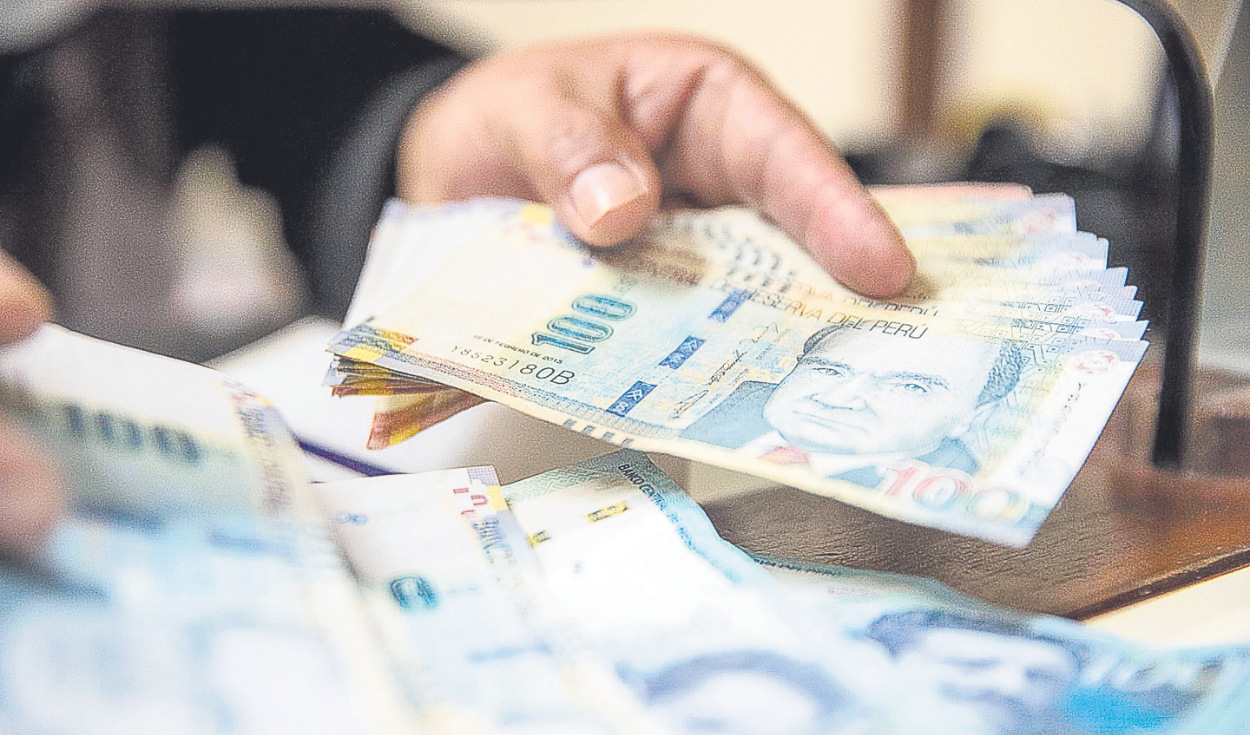
Peru is in a stage of recession, which implies a slowdown of the economywith less investments, production, consumption and little job creation.
To detail, It is a hard blow to the pockets of many families. Peruvians, who have increasingly less purchasing power and spending possibilities.
In a panorama of uncertainty and considering that the end of the year is approaching, it is necessary to consider some guidelines from financial experts and have a balance in the management of money in homes for the following months.
Make temporary and calm financial planning
It is crucial, in times of recession, to rethink income management. According to Walter Eyzaguirre, expert in financial educationit is not just about cutting expenses momentarily, but rather analyzing the accounts calmly and adjusting the lifestyle according to the situation, in order to prepare a budget that benefits families.
“We need to completely transform the structurenot necessarily eliminating what we like, but planning better,” he told La República.
In that sense, you can start with small variations in activities that generate additional amounts.
At home, lower consumption of services should also be prioritized, such as using energy-saving LED bulbs or avoiding unnecessary use of water.
Reduce unnecessary expenses and ants
Jorge Luis Ojeda, professor of finance at the UPC, highlights the importance of stopping consuming non-essentials or postponing it for more favorable times.
Thus, it recommends avoiding acquiring goods through credit or installments in order to prevent debts or unpayable fees in times of recession.
“In these times, accessing credit is more complicated and the rates of interest They can exceed 50% or 60%,” Ojeda told this medium.
Regarding holiday expenses, such as Christmas and New Year’s, economist Armando Mendoza suggests avoiding consumerism by setting a spending limit and considering cheaper alternatives, such as exchanging expensive banquets for more affordable options such as grilled chicken or less expensive drinks.
“We have to resist that pressure and be aware that in these times, the best Christmas is the one spent with the family. And you don’t need to spend too much on these dates,” Mendoza asserted.
Look for alternatives to increase income
Another point to keep in mind is to look for ways to grow income.
To do this, specialists recommend that citizens commit to undertaking or carrying out additional activities in fields that they previously managed, and that do not imply a very high level of investment that compromises the savings that each user has.
Mendoza highlights that one must also be aware of the current market situation, the contraction of peruvian economy and the substantial reduction in spending capacity.
However, options that use digital tools or that are activities that do not involve much complexity may be some possibilities to exploit opportunities and obtain extra amounts of money.
Avoid getting into debt as much as possible
Finance specialists recommend that, given the current uncertainty, you should avoid incurring unnecessary debt, and keep expenses balanced so as not to be tight at the end of the month.
Likewise, it is advisable to prioritize, above all, family well-being, and keep in mind that the beginning of the year can be complicated because the public spending and private are experiencing a contraction trend.
“It is not a good time for debts. For many parents, in March comes an additional expense for the school period. Even in the summer months, economic activity remains contracted“said Ojeda.
Start saving our money
One of the golden rules is to save between 20% and 30% of what you receive in salary or work benefit. For example, if a person earns S/1,000 in bonuses, he should save at least S/300.
In relation to currencies, Mendoza emphasizes that both expenses and income should be kept in the same currency, so that they are protected against any variation in the exchange rate. For his part, Ojeda indicated that in the long term dollars can be an option, but the best thing is to diversify, and have a part in soles and another in dollars.
Use additional resources for important expenses
Financial specialists also advise that Those who are going to receive an additional amount, such as a bonus or bonus, do not consider it as free money that they can spend without consequences, but that it is directed to an opportunity for the economy.
That is, that money is used to pay off outstanding debts or is used for school supplies or home improvement expenses.
Source: Larepublica
Alia is a professional author and journalist, working at 247 news agency. She writes on various topics from economy news to general interest pieces, providing readers with relevant and informative content. With years of experience, she brings a unique perspective and in-depth analysis to her work.












